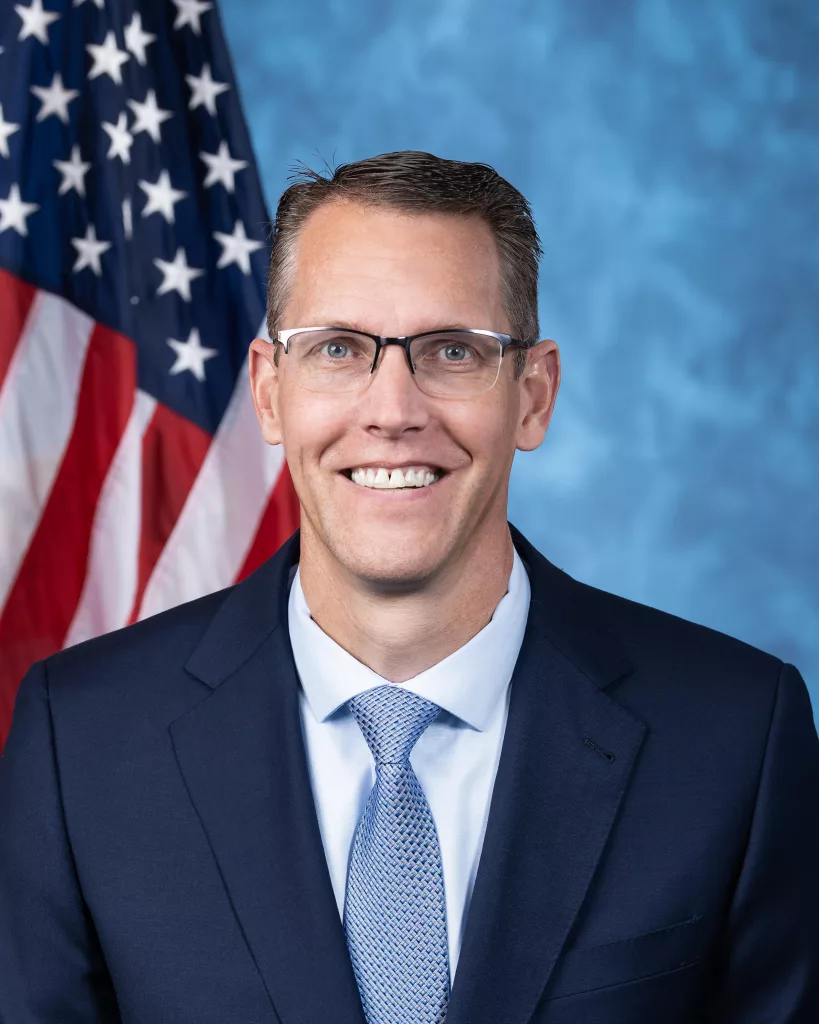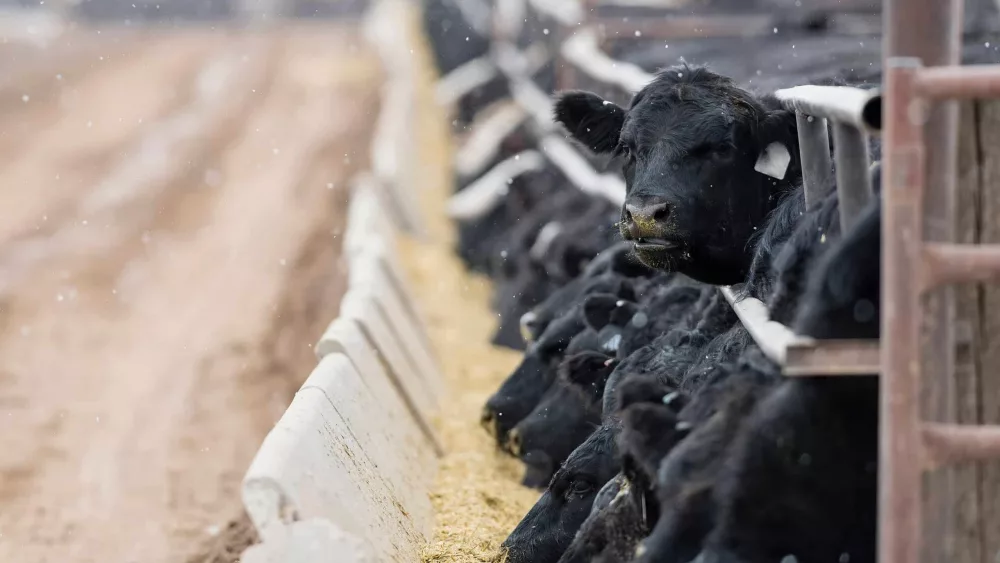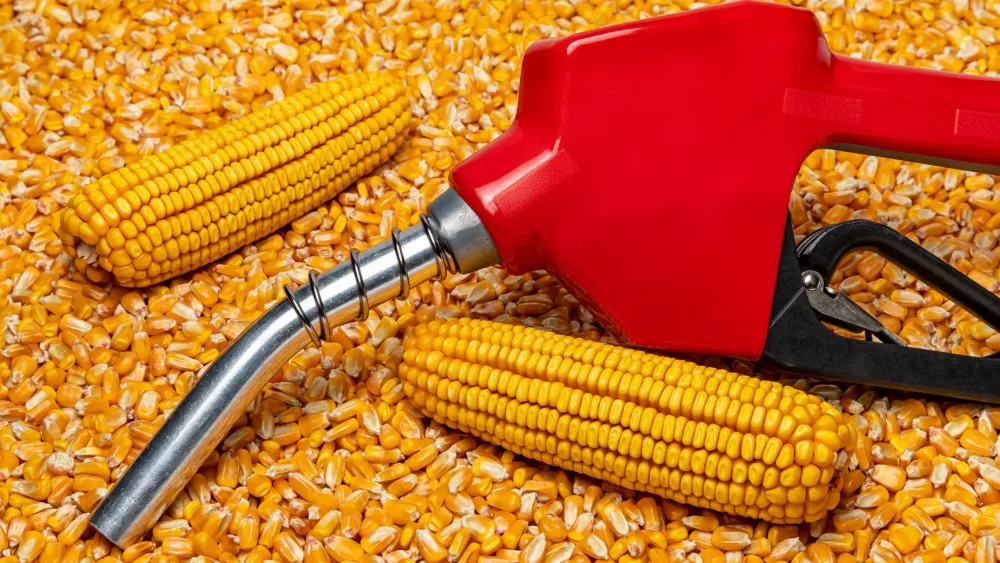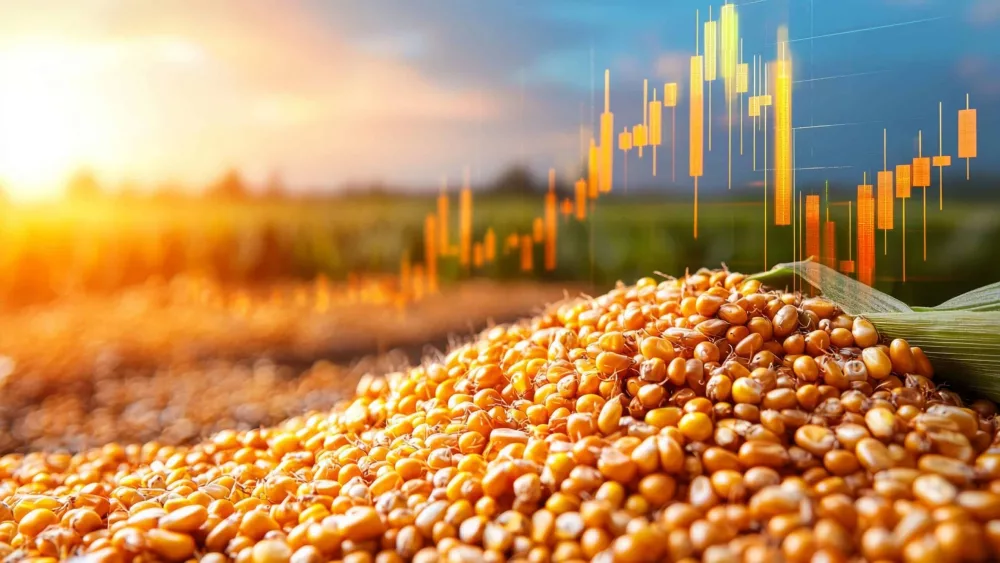(NASHVILLE, TN) — The topic of year-round E-15 and whether or not there is the political will to make investment in more renewable fuels, like sustainable aviation fuel, was among many topics of conversation with one midwest Congressman this week.
Speaking to reporters at the National Ethanol Conference in Nashville, TN, Congressman Randy Feenstra (R-IA) said he believes there are a few opportunities to pass the newly reintroduced Nationwide Consumer and Fuel Retailer Choice Act. That bill would allow for the year-round sale of ethanol blends up to 15 percent, nationwide.
“Right now, just like it was in December, we had it attached to the continuing resolution on the budget. And in December, we kicked that can down the road till March 15,” said Congressman Feenstra. “So we got another opportunity March 15 to hook that on to the continuing resolution at that time or to the full budget. If we pass that, depends where we’re gonna go. But that’s the vehicle right now that we’re looking for. Otherwise, we’ll be looking for other vehicles. But right now, that is the focus in the Senate and the House to put it on that vehicle.”
If that year-round legislation is not passed by the summer driving season, the Iowa Congressman says they have talked with the new EPA administrator and the Trump administration about a backup plan for a summertime waiver.
“I mean, we don’t want backups, but we have to have backups,” said Congressman Feenstra. “So obviously talking with the administration along with Lee Zeldin, the head of EPA, on what this looks like to get the extension over the summer to have year-round E15, and the great thing is we’re trying to get Lee Zeldin down to Iowa to show him some ethanol plants and show him how valuable and important this is to our country. Again, telling our story, not only to the administration, but to all the agency heads that affect whether it be E15 or 45Z or 45Q or whatever it might be, and that’s what we’re doing right now.”
Another topic of conversation surrounded sustainable aviation fuel (SAF) and other renewable fuels that have been widely talked about for the last several years. Is there the political will in Washington D.C. to make the investment to give SAF and more a future?
“I believe the will is there,” says Congressman Feenstra. “You think about what happened decades ago with ethanol. We had tax credits and other things. Now we don’t have a single tax credit for ethanol and it’s standing on its own. So now the next step is, how can we grow this? How can we, instead of having 15 billion gallons of ethanol being made, how can we get that to 30 to 60, whatever it might be? And the future is there. And we just gotta create the investment. And the other option is giving subsidy to our farmers. And really no one wants to do that. We wanna have an economic engine and energy independence. And that’s what we’re trying to do.”
Congressman Feenstra also said, when it comes to the political will to make investment in things like SAF, that the story of how important this could be to farmers and the rural economy needs to be told.
“The story has to be told because people don’t understand the whole story,” said Congressman Feenstra. “I mean, you have to think about what it does for agricultural production. When you talk about what we can do with sustainable aviation fuel, with growing ethanol and biofuels, it helps all of agriculture, it helps our producers. And more importantly, we want to be energy independent as a country. So this is where it begins. And then finally, if like last December, we had to do supplemental aid for our farmers. We don’t want that. We don’t wanna give supplemental aid. We’d rather have markets for our corn and soybeans and other commodity products. And this is that avenue. And that’s the story we’re trying to tell is having places for our corn to go that’s productive, energy independent, and helps our producers.”
Other topics of conversation included trade, the prospect of a new Farm Bill later this year and the impact of DOGE on the federal government. When it comes to the flurry of DOGE activity and if their impact at USDA concerns the Iowa Congressman, he indicated we need to let the process play out.
“I’ll just say this. It’s a new day, and we all have to understand that. Is there gonna be some hiccups? Absolutely. We’re running through some hiccups,” said Congressman Feenstra. “We had a great conversation this past week with Rollins and others. Obviously, there’s some hiccups with FSA offices and stuff like that, losing some employees, but we’re trying to get that exempt. We’re working through the process, and all I ask for everyone out there is just give us time. We understand that when you change administration and we wanna be more efficient and effective, there’s gonna be some hiccups along the way, but once it gets done, it’ll be amazing.”
Congressman Feenstra sits on both the House Agriculture Committee and the House Ways and Means Committee and he says they are working on extending the 2017 Tax Cuts and Jobs Act along with looking to pass newly introduced “death tax” legislation in both the House and Senate.
“For the farmers, when you talk about 199A, if you’re a pass-through, that’s so important, or the death tax, estate tax, that has to be extended. I mean, right now, if you have $7 million, everything above that will have to be paid at 40% tax. So there’s over 200 supporters of the death tax to get that extended, to maybe even get it to $20 million worth of exemption. So working with Senator Thune, we just came out with a bill together last week on that, and we’re hoping to get that done in the reconciliation bill.”
In terms of a new Farm Bill, Congressman Feenstra believes that will be done by this summer and he has great confidence in House Ag Committee Chairman G.T. Thompson (R-PA) to get a bill done again in this Congress. He also believes that bill could come with some “parameters” or work requirements for SNAP to make it a more effective program.
“Yeah, so I loved what G.T. Thompson said, our chairman, is, you know, we’re not gonna cut SNAP, but we might create some parameters, you know, some work requirements or some other things to make it more effective as a program, and that’s what we’re dealing with right now,” said Congressman Feenstra.
And finally when it comes to trade, the Iowa Congressman did share his frustration with the lack of new trade deals over the last several years.
“It’s frustrating being on ways and means and trade in the last four years,” he says. “We have opened zero new trade markets, zero, and you think about that, so when you talk about export markets, whether it be corn, soybeans, wheat, cotton, we haven’t opened anything.”
“Cattle, hogs, dairy, and now we have that opportunity, and, you know, we’re really working with the administration right now,” added Congressman Feenstra. “You know, everybody’s hearing about tariffs, but I’m also hearing about the opportunity to have new export markets for all our commodities, and that’s exciting to hear about, to get into Africa, to get into India, to get into other countries, and that’s, to me, my focus, especially on ways and means that handles trade. It’s gonna be an exciting time in the next four years of how we can open some of these markets, because a lot of these countries are desperate for our commodities.”





